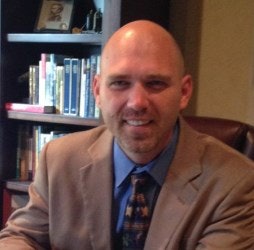 Dale Schlundt
Dale Schlundt“There is no research stating it is harmful, but I wouldn’t.” These are the words of my wife’s OBGYN when I asked him about spraying insect poison and its potential effects on my unborn son at the time. A very scholarly way of saying, “I don’t know.”
And you know what? There is nothing wrong with that reply. It reaffirmed two points for me. The first being that, I’ll throw out the poison and well, bugs, “Welcome.” The second is that it reaffirms a simple truth that we all need to be reminded of at times, that there is a purpose for everyone in this society. There is an opportunity to differentiate ourselves in our profession by fulfilling a gap. A need to find the missing piece, if you will.
Everyone at some point in their lives feels that their work is insignificant. The feeling that what I am doing is not unique; there will be no lasting effect. I have received that response from editors on articles I have written. I recall one that sent me a few responses from the editorial team, “Great points, but nothing new here.” It still hurts. Of course, there have been those more impressed then not. Nevertheless, what I strive for is to create something needed, both in my writings and my profession. Perhaps not even something new, only a new way of viewing the old.
I pose the question to you: what is the difference between the individuals discussing immigration reform seeking their party’s presidential nomination? They are all arguing for the same relative concept with small variations. Legalized immigration as opposed to a lack of control over the flow of those crossing the border. However, what does every political candidate tell you they can do? “I can do it better.” You know, perhaps so. Why not? Why else are we listening if they are all the same?
That being said, why would we believe an individual we’ve never met and discount our own abilities to create something the world needs? This is due to the fact that we have been taught to be inheritors. To inherit information, rules, culture and so on, without adding to them. If you think about any time while you were in school, regardless of what level, how many times did your educators ask for your opinion as opposed to giving their own? When you left your institution of education, did your employer focus on making an asset of what makes you unique or did they promote conformity in all regards? We are not taught how and when to be pragmatic. When to challenge the status quo.
The Jamestown Rediscovery Project is the perfect example of the opportunities for which I am suggesting we should all strive to find. The year 2012 was another intriguing year; the project found the remains of a young girl who had been cannibalized. Not a common practice in our first successful English colony, this incident is something we already knew of through primary sources. Though let’s keep in mind, anyone can write anything; just take a look at Twitter. Yet, now we have corroborated that evidence; so what we considered as semi-truth or potential fact, has now a much higher probability of being so. Our understanding of 400-year-old history is changing because there are those who do not simply accept the status quo, but feel that they can both learn from as well as add to the knowledge of our world.
Every profession needs these minds. No doubt there will be a M.D. that one day tells a patient, “There is now evidence suggesting certain bug poisons are harmful to fetuses, so do not spray.” The patient thinks, “I am so glad I asked and thankful there are pioneers who push prenatal health forward.”
Do not only inherit your world, create it.
Dale Schlundt is an adjunct professor for Palo Alto College and Northwest Vista College. Dale has two new books available, Tracking Life’s Lessons: Through Experiences, History, and a Little Interpretation and Education Decoded (A Collection of My Writings) now available on Amazon.





















